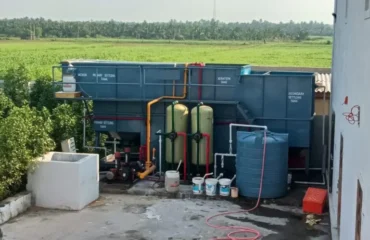Introduction
Indore, a bustling city known for its cultural heritage and rapid urbanization, prioritizes sustainable development through efficient wastewater management. The Sewage Treatment Plant (STP) in Indore plays a vital role in treating sewage to protect public health and the environment.
Importance of Sewage Treatment
Sewage contains various pollutants and contaminants that can pose risks to water quality, ecosystems, and human health if not adequately treated. The STP in Indore removes these harmful substances, ensuring that the treated water meets regulatory standards before its safe discharge or reuse.
Key Components of an STP
- Preliminary Treatment: Involves screening to remove large debris and grit from the sewage, preventing damage to downstream equipment.
- Primary Treatment: Uses settling tanks to separate solids and liquids, allowing suspended solids to settle as sludge.
- Secondary Treatment: Utilizes biological processes such as activated sludge or trickling filters to further break down organic matter and remove dissolved pollutants.
- Tertiary Treatment: Incorporates advanced processes like filtration, chemical treatment, and UV disinfection to produce high-quality effluent suitable for environmental release or reuse.
Benefits of an STP in Indore
- Environmental Protection: Reduces pollution of water bodies and minimizes the impact on aquatic ecosystems.
- Public Health Safeguarding: Minimizes the risk of waterborne diseases by treating sewage before its release into the environment.
- Resource Recovery: Allows for the recovery of water, nutrients, and energy from sewage, promoting sustainability and circular economy practices.
Role of Technology in STPs
Modern STPs in Indore integrate advanced technologies such as membrane filtration, reverse osmosis, and real-time monitoring systems for efficient and effective treatment. Automation and remote monitoring ensure optimal plant performance and regulatory compliance.
Challenges and Solutions
- Infrastructure Upgrades: Continuous investment in infrastructure upgrades and expansions to meet growing population and industrial demands.
- Capacity Management: Implementing strategies to manage sewage volumes and flow rates to optimize treatment processes.
- Community Engagement: Educating the public about responsible water use, sewage disposal, and the importance of wastewater treatment for a sustainable future.
Conclusion
The Sewage Treatment Plant in Indore plays a crucial role in safeguarding public health and the environment by treating sewage effectively. Through technological advancements and proactive measures, the STP contributes significantly to a cleaner and healthier Indore.


